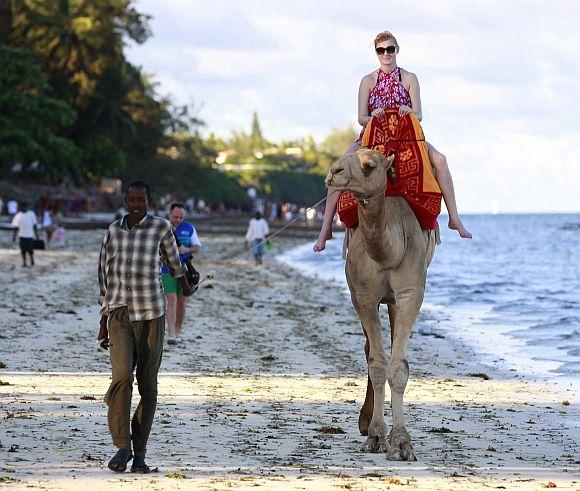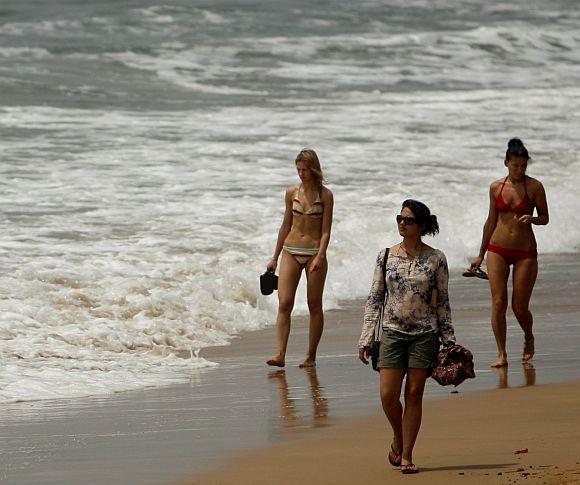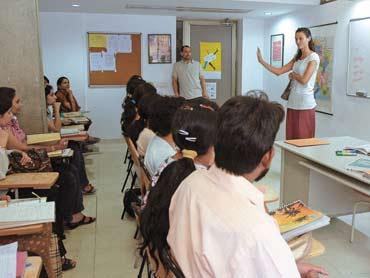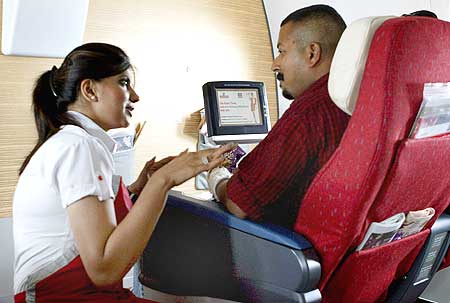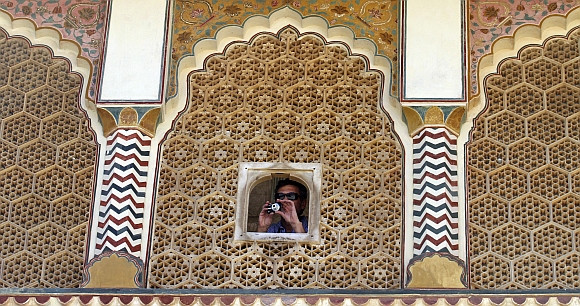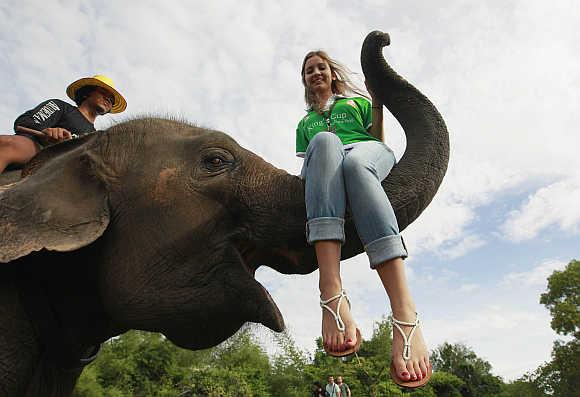 | « Back to article | Print this article |
How to become a travel advisor
Besides the opportunity of interacting with new people and exploring new places, the industry gives good returns and perks. Find out how you can pursue a career as a professional travel advisor
For Jayant, an extrovert, friendly, sociable, BSc hospitality graduate, a brief stint at the Taj Hotel made him realise his real calling.
Sharing his experience he shares, “It was upsetting for me to work in the rigorous, repetitive, sweaty and enclosed confines of the kitchen. I pondered over my strengths, gaps and found myself to be fit in the tourism industry.”
He opted for a Post Graduate Diploma in Management at the Indian Institute of Toursim and Travel Management, Delhi to explore a people-oriented job.
Today, Jayant is proving his skills at the sales division of Cox and Kings.
Though hospitality and tourism management are spoken of in the same breath, there is a thin line of difference.
Hospitality management prepares a student to work in the field of catering, accommodation whereas tourism management revolves around the core area of tourism.
Stopover at new locales, culture
The industry gives good returns and perks.
“Interacting with people from different cultures excites me most about the profession,” feels Arif, Senior Consultant at SITA travels, India’s leading in-bound destination management company. He entertains Canadian clients by preparing thrilling packages.
Considering it a high point he says, “I travel extensively across India, with all expenses borne by the company.”
Two-year PGDM prepares managers at higher levels offering steep salaries,” affirms Dr Charusheela Yadav, assistant professor, IITTM, Delhi.
Though experience matters a lot in the industry, for your promotions, a management degree adds value. So it could be either PGDM or MBA.
Please click NEXT to continue reading...
Pursuing the course: What you should know
Programme: PGDM in Travel and Tourism
Top colleges: Indian Institute of Tourism and Travel Management (Delhi, Gwalior, Bhubaneswar and Nellore), National Institute of Tourism and Hospitality Management (NITHM), Hyderabad, Kerala Institute of Tourism and Travel Studies (KITTS)
Job areas: Online portals, Travel agencies, Airlines, Cruise lines, Hotels, Ministry of Tourism
Designation: Management Trainees, Managers, Tour Mangers, Product developers, Market Researcher, Guest Relationship Managers, Itinerary Designers, Tour Planners
Personality traits required
- Good selling skills
- Knowledge of current rules
- Interpersonal skills
- Awareness about destinations
- Passion for geography and travelling
Pursuing the course
You must be a graduate to enrol for the programme.
The selection processes vary from institute to institute.
Most institutes conduct entrance exam and ask for CAT/ MAT score.
For Jayant, the structure of entrance paper was similar to MAT. He advices exam-takers to keep abreast of current affairs and reasoning questions.
The IITTMs, KITTS, Kerala, NITHM, Hyderabad are ranked among top colleges, and a faculty a IITTM, Nellore gives us a snapshot of the programme.
'Distance degrees are weak in creating speedy career growth'
Sanjeev Reddy CK, faculty, Indian Institute of Travel and Tourism (IITTM), Nellore offers insights into the tourism industry and how students can avail of a successful career in it.
Many colleges offer diploma, PG, MBA degrees. How do you assess them?
Academically speaking, I don’t find much of a difference in the course contents. It is the teaching methodology which rules the roost.
The Post Graduate Diploma in Management (PGDM) equivalent to MBA is more technical-oriented as compared to diploma, certificate or crash programmes.
At PGDM level, along with core travel and tourism subjects, one also learns management theories. So definitely, it has an edge over other courses.
What is your stance on distance learning courses?
The degrees which are available at the click of a mouse are convenient and highly economical. But they are weak in terms of creating speedy career growth.
If you compare distance learning with regular courses, then certainly, it falls flat over providing recognition, practical knowledge and college placements which help many fresh graduates to get hired in reputed companies like Cox and Kings, Thomas Cook, Yatra.com, SITA Travels, Makemytrip.com and many others. Most of them prefer regular learning courses.
Tell us about the key areas of concern in travel and tourism industry.
Exploitation of the locals and resources, trafficking, and pressure on the natural habitat are issues to be addressed.
We have to make tourism ecologically supportive. Service providers should approach community level development which can be achieved by enhancing local culture and tradition.
Being responsible to oneself and sensitising others to be responsible would solve a chunk of the problem.
Placement opportunities after completion of course
Prof Yadav reveals, “We have a batch of 93. And all 93 are placed. But their salaries differ according to their calibre.”
All top-notch companies like Thomas Cook, SOTC, TL World Wave, Leisure Holidays, Creative Travel, Cox and Kings, Makemytrip.com approach the institute on a regular basis.
This clearly indicates that the tourism industry needs people.
Job roles
Travel managers assess the needs of tourists and make best possible travel arrangements.
They create packages - manage the travel and stay of the tourists, provide details regarding the transport facilities, transport rates, currency exchange and the visa work.
Ticketing professionals work on a particular application called GDS -- Global Distribution System.
Interested students must learn softwares like Worldspan, Amadeus, Galileo or Sabre to excel in the ticketing field.
“I learned them during training programmes conducted by the experts of Air India at my institute,” says Subhabrata Bhattacharjee, Operational Manager, Indigo (alumnus, IITTM, Gwalior).
At times, there is an added advantage for those who have qualified IATA (Indian Air Transport Association).
The short course is all about learning airlines industries, different types of codes (city/ country), geography.
“The value of an employee doubles up, if he has done IATA consultant course. The company hires him for the post of subject matter expert with a starting salary of Rs. 25,000,” reveals Bhattacharjee.
An event manager will involve in the activities of conducting seminars, conferences, exhibitions announcements, marketing, writing proposals.
Abhilasha Bahadur, trainee executive was brimming with confidence, when she spoke about her role in anchoring events, besides her usual writing, marketing and sales profile at Fair Fest Media Limited.
India is among the most potential tourism markets in the world
Challenges of the profession
It is a profession where a person gets to know people of different temperaments.
“Some days we receive vague or agitated calls from the customers.”
This sentiment resonates with every travel professional you speak with. The travel managers have to mould their minds according to clients’ needs and bring out favourable packages.
Also, global recession followed by terror attacks in Mumbai had badly hit the tourism industry.
The demand for travel declines with any change in a country’s well being.
Crises such as war, tsunami, natural disasters may directly hit salaries of travel employees.
Booming industry
The opening up of skies to private airlines has resulted in easy flow of domestic and international flights in the country.
With India receiving 1,00,000 foreign tourists every year, the country epitomises one of the most potential tourism markets in the world.
According to RN Pandey, Additional Director, Ministry of Tourism, “Industry is moving at a good pace. Foreign Tourist Arrivals (FTAs) in India during 2010 were 5.58 million as compared to 5.17 million during 2009. Several recent initiatives and events like Commonwealth Games, T-20 IPL matches had favourable impact on the sector,” he said.
This growth will indeed translate into more jobs in this sector.
Fresh graduates share their experience
Suyash Mathur, management trainee, Makemytrip.com shares his experience of working in the industry:
As a kid, any talk on adventure or exciting places attracted the attention of Suyash, who adores reading travel books.
“It comes naturally to discover unique places,” he says, while sharing his aim to make thrilling travel packages in the future. Recently he was placed by IITTM, Delhi at makemytrip.com, a leading travel portal which exudes energy, passion of young professionals in casual attire working largely inside colourful walls.
In this trendy work-set up, Suyash, an active swimmer and football player is found chatting with his clients on his PC.
He addresses the out-bound queries at the holidays section. There are two types of work -- sales and operations.
He is into sales and there is a chat page like any other yahoo messenger or gmail chat.
Surfers have the option to type their queries. “We revert to those interested clients to identify their requirements. If they respond positively – then we call them and then design their packages accordingly,” he explains.
Some days go hard while tackling nagging customers. He concurs, “We get customers who negotiate over packages or poke you every second if they have any apprehension over visiting a new place. We try to win at all costs".
Jayant Ghelot, management trainee, Cox & Kings, India also talks about his experience so far:
“Cox and Kings is the dream company to work with,” expresses Jayant with a radiating smile. His hard work was noticed during his summer training, which compelled them to absorb his skills when he applied for a job. The interviewer probed him on technical, interpersonal skills and appointed him in the sales division to look after MICE (Meetings, Incentives, Conferences & Exhibitions).
There were several other kinds of work - air ticketing, travel implants, Bharath Dekho (domestic services) and Duniya Dekho (international services). Travel implants are basically the tie-ups with the big companies where all travel needs are catered to by the travel company concerned.
Jayant randomly calls reputed companies to find their MICE requirements. “We provide incentive travel programme to the dealers of the company. It’s a B-to-B affair where we organise corporate dinners, corporate evenings, annual meets, conferences,” he adds. His face relaxes when he shares about closing work by 6.30 p.m whereas operations department works for long hours.
Career prospects: Earn up to Rs 50,000 per month
With India being a unique conference destination for its exotic cultural and heritage sites, the MICE tourism (Meetings, Incentives, Conferences and Exhibitions) is fast gaining popularity.
In most companies, there is an exclusive division promoting MICE services. There is a huge demand at the entry level as one-to-one guest/ client contact is high.
You will find pressing need of freshers in sales divisions. Whereas at the operational level, more experienced people are at the service as tour managers, product developers, itinerary designers and tour planners.
Positions vary from company to company as per different nomenclatures.
Usually, a PGDM student will start off his career as management trainee and then graduate to a Senior Executive/ Assistant Manager/Deputy Manager -- eventually you take care of office operations, vouchers and more.
Travel portals, travel agencies, hotels, airlines, travel agencies, cruise lines, event-based companies are embracing qualified travel professionals. In the public sector, there are opportunities for freshers as information officers. The candidates are selected by the Staff Selection Commission through a competitive exam.
Remuneration
”I can give around Rs 12,000 to 15,000 to a fresher. We consider nine months as a catch-up period. If we see him improving then we go on to increase his salary,” shares Neena, Senior HR Manager, Cox & Kings.
The levels of salary may shoot up to Rs 40,000 to 50,000 depending on experience, specialisation and recognised managerial degrees.
Sanjay, senior manager, Thomas Cook discloses “Good salaries depend on your X factor. Someone who has a good product knowledge, speaks a good language can grab a fat cheque.”
